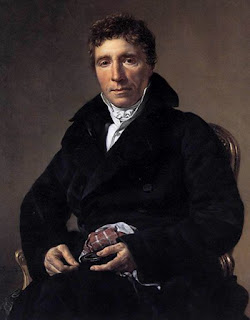
What is the third [Sixth Venezuelan] Estate? Everything. What has it been hitherto in the political order? Nothing. What does it desire? To be something.
This is a manifesto for the establishment of the next Venezuelan state. The Fifth State starting from 1999 proved to a failure. After constantly violating human rights, freedom of expression and electoral fraud.
Emmanuel Joseph Sieyès (3 May 1748 – 20 June 1836) (pronounced [sjejɛs] or [sijɛs]) was a French Roman Catholic abbé and clergyman, one of the chief theorists of the French Revolution, French Consulate, and First French Empire. His liberal 1789 pamphlet What is the Third Estate? became the manifesto of the Revolution that helped transform the Estates-General into the National Assembly in June 1789. In 1799, he was the instigator of the coup d'état of 18 Brumaire (9 November 1799), which brought Napoleon Bonaparte to power. He was also the first to coin the term "sociologie" (French for "sociology") in an unpublished manuscript. Sieyès and his party "spoke the language of democracy", unlike Jean Joseph Mounier and his party the Monarchiens.
In 1788, Louis XVI of France proposed convocation of the Estates-General of France after the interval of more than a century and a half, and the invitation of Jacques Necker to writers to state their views as to the organization of the Estates, enabled Sieyès to publish his celebrated January 1789 pamphlet, Qu’est-ce que le tiers état? ("What Is the Third Estate?") He begins his answer:
"What is the Third Estate? Everything. What has it been hitherto in the political order? Nothing. What does it desire? To be something."
This phrase, which was to remain famous, is said to have been inspired by Nicolas Chamfort. The pamphlet was very successful, and its author, despite his clerical vocation (which made him part of the First Estate), was elected as the last (the twentieth) of the deputies the Third Estate of Paris to the Estates-General. He played his main role in the opening years of the Revolution, drafting the Declaration of the Rights of Man and Citizen, expanding on the theory of national sovereignty, popular sovereignty, and representation implied in his pamphlet, with a distinction between active and passive citizens that justified suffrage limited to male owners of property.
Impact on the Revolution
The contributions of Sieyès’s pamphlet were indispensable to the revolutionary thought that projected France towards the French Revolution. In his pamphlet he outlined the desires and frustrations of the alienated class of people that made up the third estate. In many senses of the expression, he was the force that ripped the band-aid off the Ancien Régime in France by arguing the nobility to be fraudulent and preying on an overburdened and despondent bourgeoisie. The pamphlet was essentially the rallying cry that united a hitherto neglectable class into an unheard-of political force outlining and stating grievances that for the first time were not to be overlooked in the convocation of the Estates General.
Whereas the aristocracy defined themselves as an elite ruling class charged with maintaining the social order in France, Sieyès saw the Third estate as the primary mechanism of public service. Expression of radical thought at its best, the pamphlet placed sovereignty not in the hands of aristocrats but instead defined the nation of France by its working class, whose daily trials and tribulations “are the activities which support society”. The French Revolution could not have been what it was without this patriotic and radical message, more importantly one so eagerly dispersed by the rising revolutionary politics within the third estate.
In being perhaps the most daunting of his rhetorical repertoire, Sieyès essentially argued from the nobility's privileges that to establish the aristocracy as an alien body acting outside of the nation of France and deemed noble privilege “treason to the commonwealth”. As a consequence, the resulting conflict between the orders inspired the proper political sphere from which the revolution grew.
Perhaps most significant was the influence of Sieyès’s pamphlet on the structural concerns that arose surrounding the convocation of the Estates general. Specifically, the third estate demanded that the number of deputies for their order be equal that of the two privileged orders combined, and most controversially “that the States General Vote, Not by Orders, but by Heads.” The pamphlet took these issues to the masses and their partial appeasement was met with revolutionary reaction. By addressing the issues of representation directly, Sieyès inspired resentment and agitation that united the third estate against the feudalistic traditions of the Ancien Régime.
be




No comments:
Post a Comment